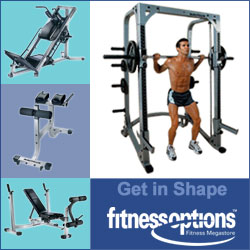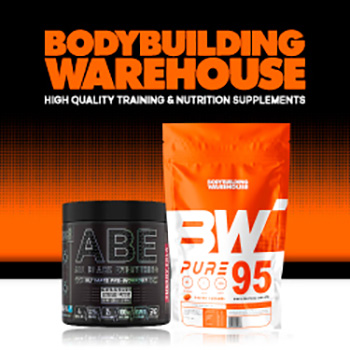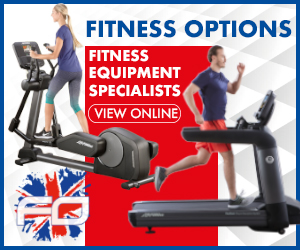
Key Takeaways
- Understanding how nutrition can affect performance is crucial for anyone engaging in physical activities. This is the starting point for exploring how can nutrition's affect performance. Consuming a balanced meal with carbs and protein 2-3 hours before your workout provides optimal energy and prevents muscle breakdown during exercise.
- Exploring how can nutrition's affect performance involves considering the post workout “anabolic window” of 30-45 minutes. This is prime time for nutrient absorption to kickstart muscle recovery and growth.
- Hydration is a critical but often overlooked component of workout nutrition aim for 16-20oz of water 2 hours before exercise and 8oz every 15-20 minutes during activity. How can nutrition's affect performance if hydration is neglected?
- For maximum muscle repair and glycogen replenishment, aim for a 3:1 or 4:1 carb to protein ratio in your post workout meal.
- Whole food options often provide superior nutrient profiles compared to supplements, though supplements offer convenience when whole foods aren't practical.
The Power Behind Your Performance: Nutrition That Makes or Breaks Your Workout
Your body is a high performance machine that requires premium fuel to operate at its peak. How can nutrition's affect performance if what you eat before and after your workout isn't just a minor detail? It's the difference between crushing your goals and hitting a wall. Think of your pre and post workout nutrition as the bookends that support your fitness journey. They provide both the energy to perform and the nutrients to recover.
The science is clear, strategic nutrition timing and composition directly impact your strength, endurance, muscle growth, and recovery time. Studies consistently show that athletes who prioritise proper nutrition around their workouts experience 20-40% better performance outcomes. This is compared to those who train in a nutritionally compromised state. Your muscles don't just grow during workouts they break down. It's the recovery fuelled by proper nutrition that builds them back stronger.
While many fitness enthusiasts focus exclusively on workout intensity and duration, the truth is that even the most perfectly designed training programme will fall short without proper nutritional support. Legendary strength coach Charles Poliquin once said, “Your body composition is 80% nutrition and 20% training.” This isn't to minimise the importance of proper exercise. Rather, it highlights how crucial your eating habits are to your fitness results.
“You can't out train a poor diet, and you can't maximise your genetic potential without proper nutrition timing. What you eat in the windows before and after training can amplify or diminish the work you put in at the gym. It demonstrates how nutrition can affect performance greatly.”
Pre Workout Fuel: What to Eat for Maximum Energy
Pre workout nutrition serves a crucial purpose. It provides readily available fuel for your muscles while preventing premature fatigue and muscle breakdown. The right pre workout meal ensures your glycogen stores are topped off. Therefore, giving you the energy to push through even the most demanding sessions. Your body primarily relies on carbohydrates during high intensity exercise, making them the star macronutrient of your pre workout meal. The question then becomes: how can nutrition's strategically affect performance?
- Complex carbohydrates: Sweet potatoes, oatmeal, brown rice, whole grain bread
- Moderate protein: Greek yoghurt, chicken breast, eggs, whey protein
- Limited healthy fats: Small amounts of nut butter, avocado, or olive oil
- Easily digestible options: Fruit, rice cakes with honey, sports drinks (for very intense sessions)
The ideal pre workout meal varies based on your fitness goals, workout type, and individual digestion. Strength athletes benefit from slightly higher protein intake to support muscle preservation. Meanwhile, endurance athletes may need more carbohydrates to fuel longer sessions. Your personal tolerance also matters. Some athletes thrive on a substantial meal 2-3 hours pre workout, while others perform better with a small snack 30-60 minutes before training.
Timing Your Pre Workout Meal for Best Results
When you eat is nearly as important as what you eat when it comes to pre workout nutrition. This leads to the question of how can nutrition's affect performance through timing. The timing of your pre workout meal affects how those nutrients are utilised during exercise. Larger meals containing fat and fibre require longer digestion times. Aim to consume these 2-3 hours before your workout to prevent digestive discomfort. If you're training first thing in the morning or can only eat closer to your workout, opt for a smaller, easily digestible carb and protein snack about 30-60 minutes beforehand. This quick digesting fuel provides immediate energy without sitting heavily in your stomach during exercise.
Carb Loading: Why Your Muscles Need This Energy Source
Carbohydrates are your muscles' preferred energy source during high intensity exercise. Thus, they are the cornerstone of effective pre workout nutrition. When consumed, carbs break down into glucose, which circulates in your bloodstream for immediate energy. Alternatively, it gets stored as glycogen in your muscles and liver for later use. During intense training, your body primarily relies on these glycogen stores. When they're depleted, performance rapidly declines as your body struggles to maintain energy output. Research shows that athletes with adequate glycogen stores can train up to 20% longer before reaching exhaustion compared to those with depleted reserves. This highlights again how can nutrition's affect performance positively.
Protein Before Exercise: How Much You Really Need
While carbohydrates power your workout, protein plays a supporting yet vital role in your pre exercise nutrition plan. Consuming moderate protein before training helps minimise muscle breakdown during your workout. It essentially provides a protective effect against excessive catabolism (muscle breakdown). The amino acids from protein are also available during recovery, giving your body a head start on the repair process. For most fitness enthusiasts, 15-25 grams of high quality protein in your pre workout meal strikes the ideal balance. It is enough to provide benefits without slowing digestion or causing discomfort during exercise.
- 20g protein from Greek yoghurt with berries and honey (90 minutes pre-workout)
- 15g protein from a whey protein shake with a banana (45-60 minutes pre-workout)
- 25g protein from 3-4oz chicken breast with rice (2-3 hours pre-workout)
- 18g protein from two eggs on whole grain toast (90 minutes pre-workout)
Quick Pre Workout Snacks When You're Short on Time
Life gets hectic, and sometimes you're rushing to fit in a workout with minimal prep time. When you're in a time crunch, these quick pre workout snacks deliver fast acting energy without weighing you down. Aim for options that combine quick digesting carbs with a touch of protein for sustained energy. Understanding how nutrition can affect performance helps you find the balance between fuelling adequately and not eating so much that you feel uncomfortable during your training session.
- A banana with a tablespoon of almond butter
- Rice cake topped with 1-2 tablespoons of honey
- Small apple with a string cheese
- Half a protein bar with lower fibre content
- Handful of dried fruit and a few nuts






